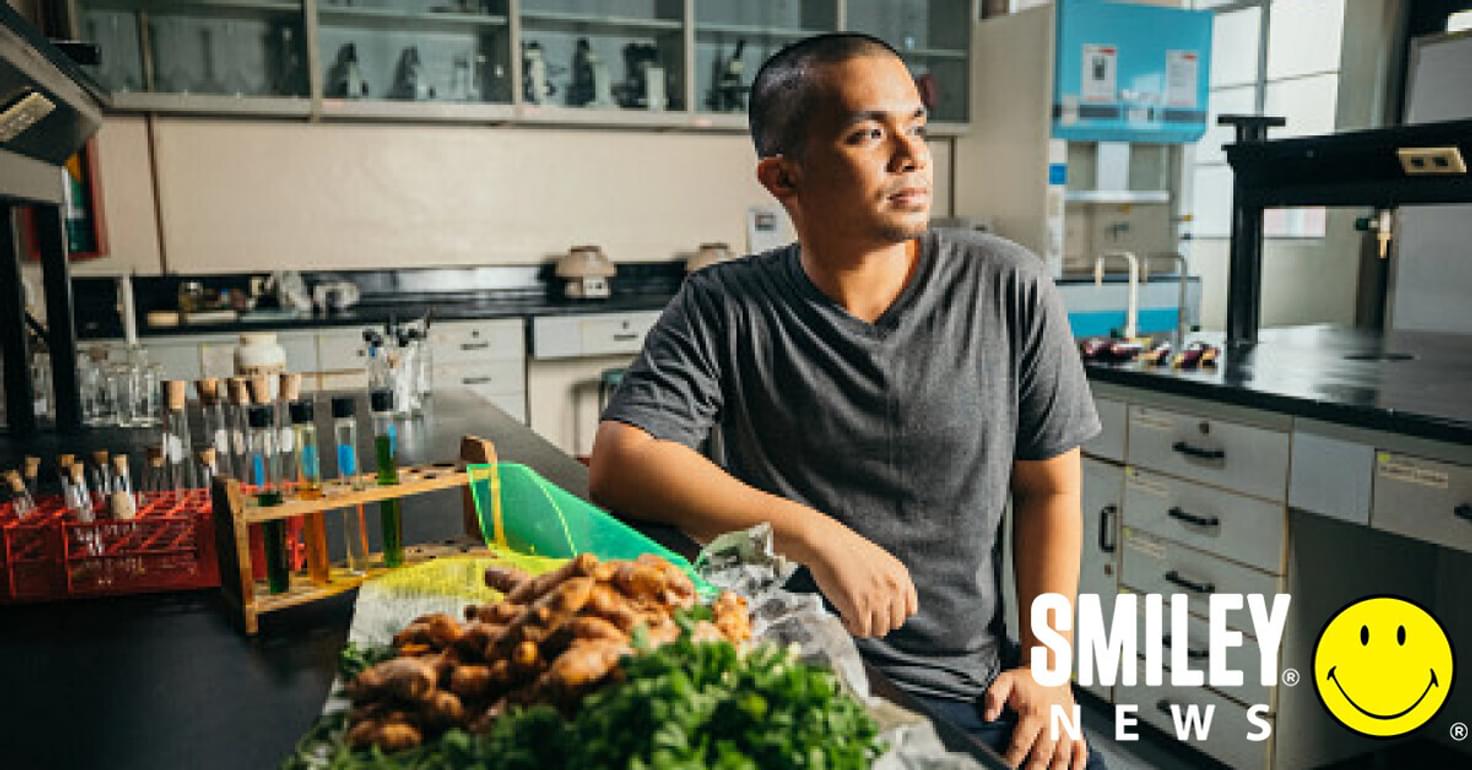
Words by Smiley Team
With the complex network of cells and wiring that goes into solar panels, who would have thought that something as mundane as compost could be key to improving their performance? Yet this was the discovery made by one Filipino engineering student, whose ingenuity recently won him an award.
While studying at a leading engineering school in the Philippines, Mapua University, Carvey Ehren Maigue encountered something that caught his attention. Fruit and vegetable waste had a property that he realised could improve the performance of solar panels.
That the same waste we produce daily in our homes contains natural particles which absorb ultraviolet rays and emit energy as light. It dawned on him that these visible light rays could prove vital for fuelling solar panels on overcast days when there is less sunlight.
The result was AuREUS, as Carvey calls the material. Already his discovery has led him to win a sustainability award from the James Dyson Foundation, and gain recognition from international organisations such as the World Economic Forum.
Looking back at the moment he learnt he’d won the award, he said: “It really surprised me and it took a few more days before it dawned on me. I was very happy because I know that through this Award, I will be able to reach more people.”
[Discover other exciting initiatives helping communities to introduce clean and affordable energy]
He believes his creation could be an incredible tool for accelerating the transition to fossil fuels while tackling food waste and uplifting communities with affordable and clean energy.
“AuREUS has the chance to bring solar energy capture closer to people,” he explained. “In the same way computers were only used by the government or the military and now the same technology is in our smartphones, I want solar energy harvesting to be more accessible.”
Carvey is in the tenth year of his engineering degree and will graduate soon. It’s been a long process for him and he had to work hard to cover his tuition fees. He worked on prototyping and fabrication projects to fund his studies and occasionally had to take time out to earn more.
“But that’s okay with me,” he said, “- by taking on different projects, from different students, in different schools, I was able to expand my horizon of what I know.”
VOLUNTEER: If you’re interested in helping to build renewable energy for communities in London, volunteer for renewable energy charity Repowering.
GO GREEN: To install solar panels yourself in the UK, find out how you might be able to do so with the help of non-profit Solarsense.